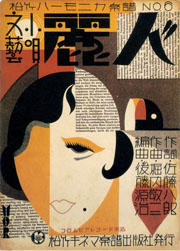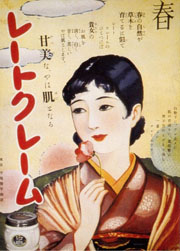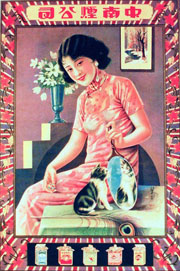Qianshen Bai This is a preliminary study of the late Qing art and antique market and the collecting practices of government officials, focusing on Wu Dacheng (1835-1902) and his friends in the second half of the nineteenth century. It will discuss the following issues: art prices, the hierarchal structure of artworks and antiques, locations of […]
Suk-Young Kim The Korean Demilitarized Zone (DMZ), a small strip of land only two miles wide and 155 miles long, is surely one of the most paradoxical places on earth. Conceived as a buffer zone, the DMZ was intended to bring about a temporary ceasefire between the two Koreas in 1953. The result of a […]
Yu-chih Lai Starting in the 1880s, there appeared in Shenbao many advertisements selling imported Japanese books. Most of them were illustrated painting manuals brought by very specific bookstores or individuals, such as Wang Yemei, the Shanghai painter who sojourned in Japan. This phenomenon went beyond the ordinary advertisements in Shenbao and had been well observed […]
Tim Oakes Argument: Leisure can be viewed as a technology of government in contemporary China, a project of social ordering directed at shaping certain kinds of conduct. As with all social ordering projects, however, the unintended outcomes – Foucault’s ‘instrument-effects’ – bring about their own social (dis)orderings in unexpected ways. Consumer citizenship may thus be […]
Xavier Paules The fact that opium took root very quickly in China during the first decades of the nineteenth century is well-known and has driven the attention of many scholars. In order to explain it, they came out with a series of reasons that made Chinese society prone to take up the habit in such […]
Nancy Smith-Hefner The “new” Indonesian middle class emerged in the early 1980s in the context of New Order educational expansion, economic growth, and bureaucratic consolidation (Hill 1994; Robinson 1996; Tanter and Young 1990). Among specialists of Southeast Asia, however, questions emerge as to how to define this new Indonesian middle class. What, after all, is […]
Rudolf Wagner The largest and most influential Chinese-language publishing house in the late 19th century was the Shenbao guan in Shanghai. It was owned by foreigners, and run by Ernest Major. Its products were designed to fill the newly opening leisure time/space of urban residents. The company has been denounced since the late 1920s a […]
Eugene Wang If the currency design serves as an ideological barometer, the first reminbi (People’s Currency) issued at the founding of PRC in 1949 came as a surprise. Of the sixty-two designs comprising the first set of reminbi, only two of them feature worker-and-peasant bust-portraits. For the socialist discourse that glorifies the worker-and-peasant duo as […]
Robert Weller This paper examines the relation between leisure and religion in modern China and Taiwan. It begins with a theoretical discussion of leisure as a frame that does not exist for all peoples, places and times. It goes on to examine two specific hypotheses about leisure—that a gift economy predominates and that women have […]
Merry White Coffee in Japan has a complicated calculus of value. The organization of coffee consumption focuses on three “highs:” high quality, high “production” and high cost. In each of these there are cultural storylines shaping ideas of value in production and consumption. There are also many surprising stories. Japan is third in imports of […]
Catherine Yeh What does it take to make a lowly Chinese opera singer, whose performances are filling the newly opening time/spaces of urban leisure, into a national and international star at the turn of the twentieth century? Talent will be essential, but it is not enough. A key condition is his/her social staging. Among the […]







